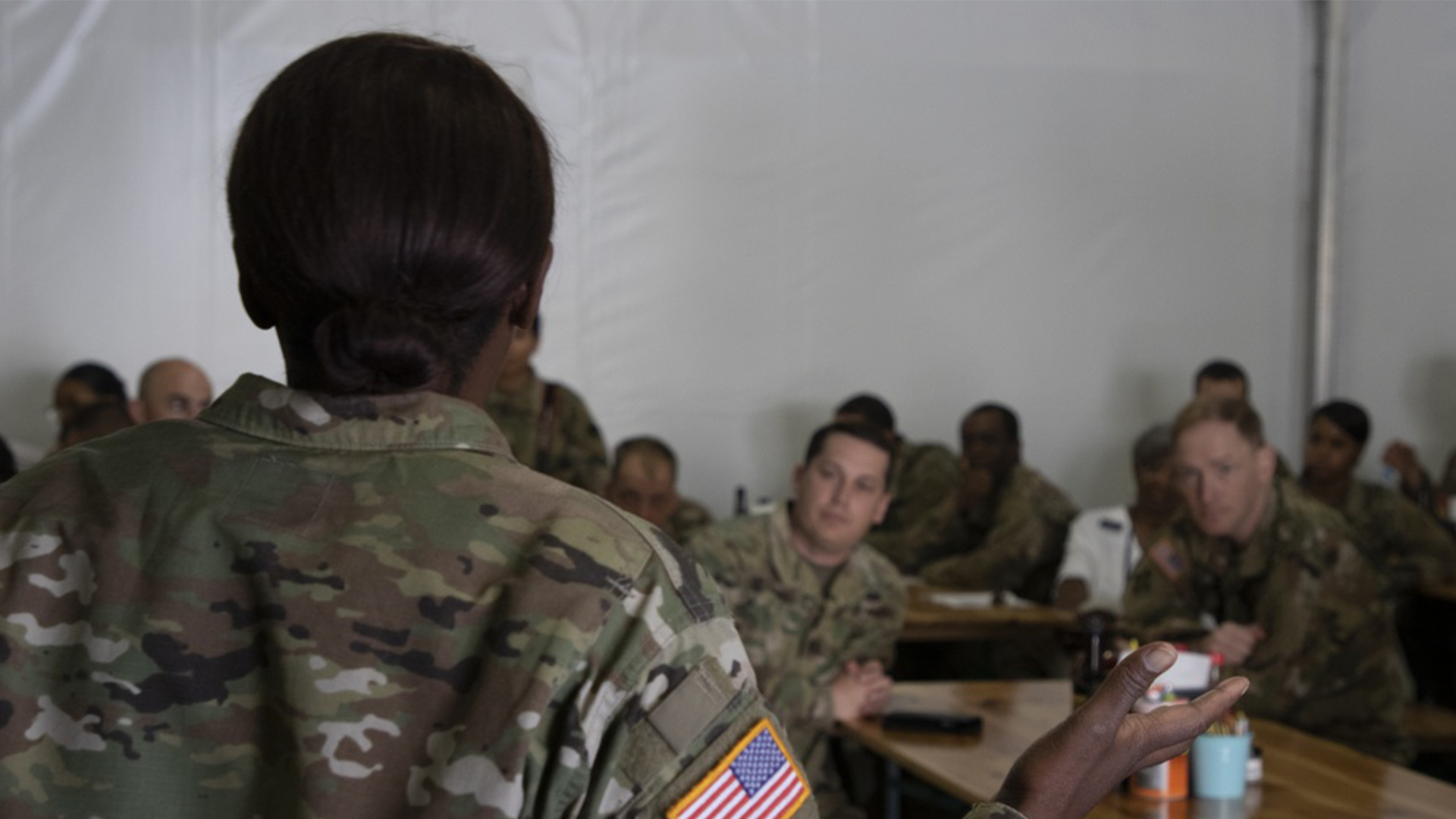

The past year has seen a wave of news stories about sexual assault and harassment in the military. From the harassment, disappearance and death of Army Spc. Vanessa Guillén to the Air Force retaining an NCO convicted of sexual assault, it’s clear that sexual assault and harassment is a widespread and persistent problem in the military.
However, there may be a chance to hold offenders more accountable for their actions. The former chief prosecutor of the Air Force, retired Col. Don Christensen, wants to give military sexual assault survivors the tools they need to avoid getting outflanked by a military justice system which many experts say is flawed and defaults toward protecting perpetrators.
That’s why Protect Our Defenders, the advocacy group of which Christensen is president, is launching Know Your Rights, a resource that shows survivors how they can seek help and what their rights are in the military justice process.
“I’ve spent my career working with sexual assault victims who were often not properly informed of their rights,” Christensen said in a press release. “That misinformation becomes a major impediment in an already arduous fight for justice. Know Your Rights is designed to remove that barrier and arm survivors with the knowledge they need to fight back.”

Among the tools provided by Know Your Rights is a list of the six most critical legal rights survivors have, and which Christensen said are also the most frequently ignored or violated. Those include:
1) The right to request that perpetrator(s) be prosecuted by civilian authorities
2) The right to be present at court martial proceedings
3) The right to make a restricted report for Pentagon ID cardholders
4) The right to counsel, including when meeting with investigators
5) The right to be protected from the perpetrators(s)
6) The right to consult with a military prosecutor
Beyond spreading awareness of one’s rights, the Know Your Rights webpage also includes links to connect survivors with legal services, casework assistance, and provides more specific advice for service academy cadets; active duty dependents; civilian victims; ROTC cadets; reservists; and members of the National Guard. While Protect Our Defenders is geared towards helping people who have been sexually assaulted, sexually harassed or raped by active duty service members, the webpage also includes links to resources for people who have been sexually assaulted by a civilian.
There is an argument to be made that campaigns like Know Your Rights might also bolster national security by helping the military as a whole. In a report published in February, the RAND Corporation found that exposure to sexual assault in the military doubles the odds that a service member would leave the military within 28 months, and sexual harassment was associated with roughly 4% of all military separations in the same time period.
“Sexual assault and sexual harassment are associated with a wide range of harms to individual service members, but this study highlights another negative impact of these crimes—higher rates of attrition and associated harms to force readiness,” said Andrew Morral, senior behavioral scientist at RAND and lead author of the report.
The military’s inability to hold perpetrators of sexual harassment and assault accountable is one reason many parents are losing faith in the military as an honorable place for their children to serve. Fatima Figueroa spoke of this disillusionment in October after her daughter, Airman 1st Class Sarah Figueroa, was sexually harassed at Misawa Air Base, but leaders at her base did nothing after the harasser violated his restraining order and continued to stalk and harass the airman for months.
“My conversations with her are like ‘Sarah if something happens, you know you have to fight to the end,’” Fatima told Kayla Rivera TV. “How can you have a conversation like that when she’s in a base? She’s not at war. She’s in the base for God’s sake, how can I have conversations like that with my daughter?”
Lupe Guillén, whose older sister Vanessa was murdered almost exactly a year ago, went missing for over a month, and whose death revealed extensive failures in the Army’s justice and investigation system, expressed a similar view with Task & Purpose.
“She was murdered on base, and there hasn’t been change,” she said. “This all could have been prevented if the change had happened before … My sister could have been right here, right next to me.”
Knowing one’s rights won’t guarantee that all offenders will be found guilty and punished, but it could give survivors a fairer chance for justice.
“I know firsthand that education is empowering and often one of the key ways we can help survivors overcome barriers to obtaining justice,” Lindsey Knapp, a former client of Protect Our Defenders, a victim advocate and founder of Combat Sexual Assault said in a press release. “A resource like [Know Your Rights] would have been a game-changer for the many victims of military sexual assault I worked with who were failed by the system.”
